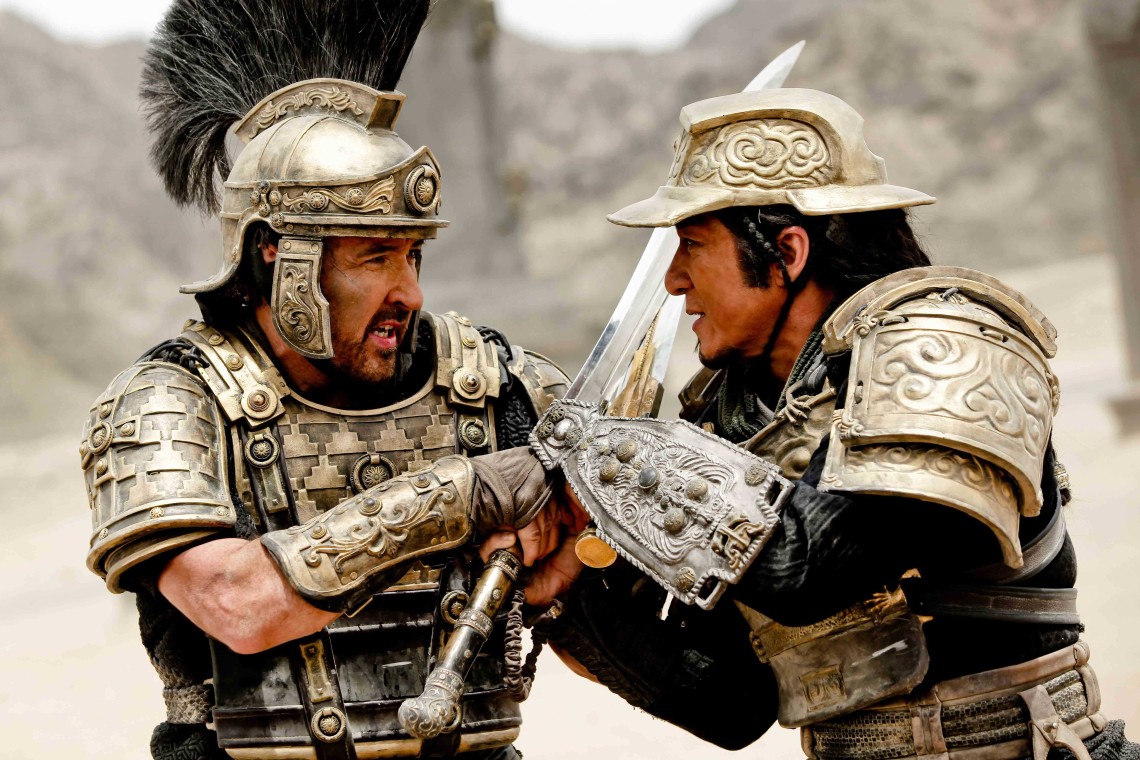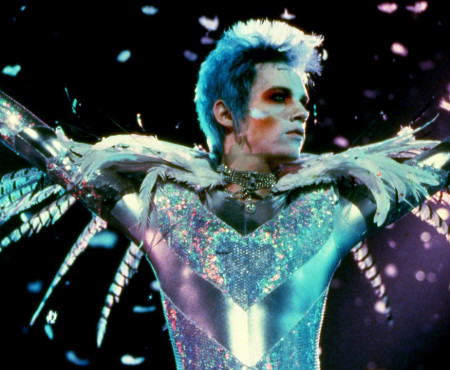The collected forces of the Chinese entertainment economy entrusted Daniel Lee, director of the majestically incompetent historical epic Dragon Blade, with a $65 million budget for his newest feature. To provide some financial context, The Sparkle Roll Media Corporation, the Huayi Brothers Media Corporation, the Shanghai Film Group, the Home Media & Entertainment Fund, and the Tencent Video Company all ponied up significant sums of capital to make this grand vision of China’s turbulent history a reality. Even the newly established Beijing Cultural Assets Chinese Film and Television Fund designated Dragon Blade as the first project deserving of their investment. The film has already grossed yachtloads of money from the markets in its native China. Even so, watching the finished product, it’s hard not to imagine Lee assembling his deep-pocketed investors for a preview screening and being met with furious demands to know where the hell everyone’s money went.
Dragon Blade is a baffling paradox. It possesses both the lavish sweep of a spectacle in the tradition of Biblical films of yore and yet all the technical finesse of a 16-year old’s first dabblings with the family camcorder—the result of which looks both obscenely expensive and amateurishly cheap at once. Basic elements of production that audiences take for granted—fripperies such as coherent editing or logical character behavior—go horribly awry here and make other films look better by comparison. Pixels was pretty awful, but hey, at least all of the parts of the film were in the correct order. Dump on Transformers all you like—really, please, do— but you gotta hand it to Michael Bay; his rubbish never looked like toy-quality hunks of painted foam.
Jackie Chan is the only cast member who seems to be aware of what he’s doing in this slipshod quagmire. He exudes self-assurance as Huo An, the leader of a paramilitary crew called the Silk Road Protection Squad who are tasked with keeping the trade route secure by the Chinese government. They set camp around the Goose Gate, making slow repairs on the damaged wall for their state overseers, as the Roman Empire encroaches with General Lucius (a staggeringly miscast John Cusack) at the vanguard. In one of the precious few sequences that actually work, Cusack and Chan fight one another to a standstill and establish a mutual respect that gives way to an alliance between the two factions. They’ll need to join together if they want to have any hope of beating back the approaching armies of Lucius’ power-mad brother Tiberius (Adrien Brody, hell-bent on eliminating any lingering respect he might have earned with his Oscar win back in 2002 for The Pianist).
The plot returns to the boundless well of China’s turbulent history for inspiration, and this historical clipping should translate to onscreen wuxia grandeur with minimal trouble. And yet, like a gadget produced on the cheap overseas, every component malfunctions. Cusack looks lost and confused, almost as if he’s just been dropped into a strange country and handed a terrible script with no further instruction. To his credit, Brody appears to be having the time of his life with the bellowing, cartoonishly villainous Tiberius. His MVP moment comes down to a toss-up between the scene in which he catches a sword flung at him and says “nice throw”, and the scene in which he suspends Cusack from some kind of torture device and says “So nice to have you hanging around.”
Considering the film’s handsome box-office grosses in China, Dragon Blade probably hasn’t raised too many heckles with investors. Regardless, it’s simply perplexing that a film as outwardly flimsy as this burned through its bountiful budget. The climactic confrontation between multiple armies achieves the sense of bigness that an undertaking of this caliber demands until a flock of sloppily computer-generated falcons descend from the skies and scads of extras must do their darnedest to pretend their eyes are being pecked out. To be fair, though, the gratuitous close-ups of bleeding eye-holes do a lot to drive the illusion home. Dragon Blade plays like an elaborate bait-and-switch, a charade in which the only suckers bigger than the Hollywood A-listers who got roped into this half-baked international effort are the viewers who paid to see it.




















